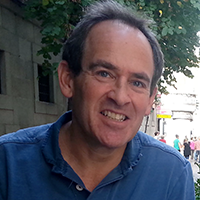With the world gripped by an American election like no other, our US experts analyse this unprecedented electoral contest and its implications for US politics.
 “Americans will keep living in the time of Trump even if Trump, himself, is history”
“Americans will keep living in the time of Trump even if Trump, himself, is history”
Even if Biden wins the presidency, this election makes it clear that Trumpism has become a formidable hegemonic project, in the Gramscian sense, with deep roots and strong loyalties among diverse constituencies. Biden’s narrow victory margins in key states; Trump’s increased support among Latinos; Republican gains in the US House of Representatives; Democratic failures to turn state legislative chambers ‘blue’; the energy among Trump supporters who have rallied across the country – all these testify to the durability of the Trumpist project. It cannot be reduced to the changeable fortunes of a single leader. We ought to ask: why does this project continue to thrive? More specifically, how can we explain the attraction of Trumpian citizenship for groups that include but go well beyond the ‘angry white working-class men’ who are stereotypically evoked as Trump enthusiasts? I think a significant part of the answer concerns rising – and spreading – socioeconomic precarity. Precarity is a ‘bivalent’ social phenomenon. It singles out particular populations, like unauthorised migrant workers and low-income Black communities, for exceptional insecurity and risk. Yet, as my research shows, precaritisation also involves distressing experiences of time in everyday life that virtually all working people suffer today. Workers throughout the employment hierarchy feel the contradiction between time’s oppressive continuity, with our contemporary culture of nonstop work, and time’s disorienting fragmentation, as ‘gigging’ becomes normalised in so many sectors and as digital technologies allow us to be called to work at any random moment. Responsible democratic citizenship requires a temporal consciousness that can critically evaluate how to build a better future by responding to present problems differently than we’ve done in the past. Precarity stultifies such consciousness. That’s one major reason why Americans will keep living in the time of Trump even if Trump, himself, is history.
Paul Apostolidis is Associate Professorial Lecturer and Deputy Head of Department for Education in the LSE Department of Government. His research combines critical theory and fieldwork with US Latino migrant workers and he is the author of ‘The Fight for Time: Migrant Day Labourers and the Politics of Precarity’ (Oxford UP 2019) and ‘Breaks in the Chain: What Immigrant Workers Can Teach America about Democracy’ (U of Minnesota P 2010), among other writings.
 “This is a key tipping point for American democracy”
“This is a key tipping point for American democracy”
I study contested elections, and I am worried about what is going to happen over the next few days. While the odds are good that the election victor will be Joe Biden, Trump has already effectively declared victory and announced his intention to contest the results through courts and recounts—a process which could take weeks. Looking at the history of contested elections. There are a couple things that are likely to happen next. First, many Republicans will accept Trump’s claims of illegitimacy. Prior to the election, over 70% of Trump supporters already doubted the integrity of the election, and recent events will only reinforce these beliefs. Second, given the high stakes of this election, history suggests these contested ideas of legitimacy are very likely to lead to protracted protest and violence, and indeed protests are already widespread. Additionally, this contested election will very likely cause many to further doubt the legitimacy of electoral institutions and democracy. At a time when trust in democratic institutions in the United States are already at a historic low, these doubts are likely to cause many citizens across the political spectrum to disengage from politics and to be more accepting of anti-democratic norms and policies. Another thing to watch will be the response of the Republic Party to this election. This election has further illustrated the effectiveness of populist, ethno-nationalist appeals in mobilizing disenchanted voters. Future Republican politicians will be pressured into adopting similarly ethno-nationalist policy and language, possibly combined with voter suppression, an isolationist foreign policy, and a rejections of democratic norms. In many ways, the success of these policies mirror the success of other ethno-nationalist parties in places like Poland and Hungary, and may have similarly negative consequences democratic representation and the rights of minority groups and immigrants. It is difficult to know for certain what is next, but regardless of who is in power, this is a key tipping point for American democracy.
Dr. Ryan Jablonski is an associate professor of political science in the LSE Department of Government. He has published widely on issues of electoral integrity, protest and violence in developing democracies.
 “Rebuilding trust in politics and institutions will be a long-term challenge”
“Rebuilding trust in politics and institutions will be a long-term challenge”
While former Vice President Joe Biden appears poised to attain the presidency, his win is far from a national mandate. As many commentators summarized, Trump may lose the election, but Trumpism is here to stay. While there is no one answer for Trump’s enduring support, increasing political distrust may help explain some of the appeal of Trumpism in 2016 and 2020. Survey evidence suggests public trust in government in the US and Western democracies began declining in the 1970s; and this distrust may be linked to the resurgence of populism in the US and Europe. Donald Trump’s candidacy rests on breaking institutional norms, the latest of which includes falsely declaring himself the winner on election night with millions of votes left to count. While such norm-breaking is shocking to analysts, for some Americans, the norms of political institutions may have felt broken long before Trump. When Trump flouts government institutions it demonstrates to skeptics that the political system was laughably fragile and corrupt in the first place. The substantive minority culture of conspiracy and misinformation in the US, represented by the election of QAnon supporter Marjorie Taylor Greene to the House of Representatives on Tuesday, is another byproduct of such distrust and polarization. For my doctoral research I am interviewing members of right-wing armed militias, groups heavily associated with conspiracism. In my conversations, I consistently hear how the political system is systemically crooked and even the best-intentioned individuals become corrupted by the political machine. These deeper systemic concerns are shared across the political aisle in my interviews with armed groups on the left. Rebuilding trust in politics and institutions will be a long-term challenge with which a future Biden administration will need to grapple, but the good news is that the new presidency will be built on the ultimate affirmation of US institutions: high voter turnout.
Ariel Perkins is a PhD Candidate in the LSE Department of Government. Her doctoral research focuses on armed social groups in the United States.
 “There are underlying systemic ‘bottom-up’ problems in American politics and society”
“There are underlying systemic ‘bottom-up’ problems in American politics and society”
With the 2020 presidential election seemingly decided by the balance of votes from cities and inner suburbs as against those in outer suburbs and rural counties, Tip O’Neill’s adage “all politics is local” is well worth recalling. Much has been written about the damage done to the presidential office and to American democracy by Donald Trump since he assumed office in January 2017, and much more such commentary is to be expected in the weeks, months, and years to come. But this top-down perspective misses underlying systemic ‘bottom-up’ problems in American politics and society, both institutional and economic. America has a long history of local political monopolies – urban political machines in northern cities and uninterrupted Democratic rule in the segregated southern states after Reconstruction. But contemporary realities are also grim: one-party states rose from 27 in 2010 to 37 of 50 in 2018, hardening political boundaries and power structures much as local governments reproduced and reinforced ‘racial’ segregation and spatial, economic, and health inequalities over the twentieth century. The institutional design of American democracy clearly overrepresents rural and small-town voters in many ways, but in economic, medical, and social terms, they have been, in the words of the eminent sociologist Robert Wuthnow, “left behind” by financialization and globalization and by successive administrations, whether Democrat or Republican. The problems – and political leanings – of rural and small-town Americans have only occasionally attracted the interest of urbanites, whether through schadenfreude-inflected media stories about ‘meth-ravaged trailer parks’ and rural militia groups, or surgical strikes on ‘public opinion’ and ‘voter preferences’ by pollsters and political scientists. Rural, small-town Americans only seem to matter as objects of fascination – and pathologization – from afar. But to understand the complex and shifting voting patterns of counties in states like Wisconsin, Michigan, Pennsylvania, and Georgia, we need to know more about the local economic trends, political institutions and power structures, lived experiences and (self-)understandings of rural and small-town Americans, from up close. Here recent scholarship produced by sociologists is especially rich and interesting. But political scientists really need to reach beyond research and writing on urban political machines and, more recently, the suburbs, to understand how rural and small-town Americans matter for democracy in America today.
John Sidel is the Sir Patrick Gillam Professor of International and Comparative Politics in the LSE Department of Government and the LSE department of International Relations. He grew up in New York City and remains a registered voter in the state of New York.
 “The choice of the voters might be thwarted in at least two ways”
“The choice of the voters might be thwarted in at least two ways”
The 2020 US election reflects, and will not resolve, the ongoing crisis of the US constitutional order. While there are still votes to be counted, it is now highly likely that they will yield an electoral college victory for Joe Biden (who leads by over 4 million votes in the institutionally irrelevant nationwide count, a figure that will probably grow to around 6 million once California’s tally is completed). Whether Biden will take office in January 2020 is less certain. The choice of the voters might be thwarted in at least two ways. The first is via court decisions rejecting the admission of certain votes to the count in crucial states. Should a case or cases with sufficient impact to tip the election to Trump reach the Supreme Court, that Court, with a 6-3 Republican majority, will almost certainly decide in Trump’s favour. So far, no likely vehicle for such a challenge to the results has emerged, but the Trump campaign is actively seeking one. A second possibility is that individual state legislatures with Republican majorities will disregard the preferences of the majority of their voters and appoint Trump-supporting delegates to the electoral college. The Constitution reserves to state legislatures the right to specify how these delegates are selected, and all have chosen to do so via popular vote. Whether a decision to change procedure and disregard that vote after it has taken place would be constitutionally permissible is disputed, but the Supreme Court as the ultimate arbiter of constitutionality would again likely favour Trump. A period of social upheaval, including massive protests and counter-protests with significant potential for violence, could well accompany the legal jousting involved and continue after a Supreme Court decision. Despite this prospect, Trump and some close allies are clearly presently willing to pursue either or both of these paths to a second term, and the potential that they will do so successfully cannot be discounted.
David Woodruff is Associate Professor of Comparative Politics in the LSE Department of Government. His research interests focus on money and corporate property rights, contemporary Russia and capitalist institutions. You can find an extended version of David’s 2020 US election analysis on his blog.
Note: this article gives the views of the authors, and not the position of the LSE Department of Government, nor of the London School of Economics.


